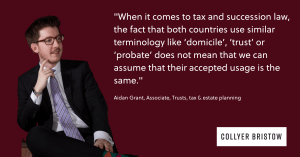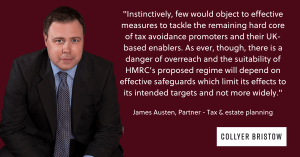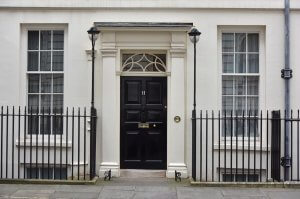- Probate
- UK trusts, tax and estate planning

Shorter Reads
Q&A: My father has left his home to me and my siblings. What will it cost to buy out my siblings?
James Cook answers a reader’s question in The Sunday Times.
1 minute read
Published 18 April 2019
Key information
- Specialisms
- Private Wealth
Stamp duty land tax (SDLT) will most likely be payable if you buy out your siblings’ shares of your father’s property. For example, if the home is worth £1m and your siblings’ shares total £750,000, the liability would be £27,500. SDLT is calculated on a sliding scale, with no charge on the first £125,000, 2% on the next £125,000, 5% on the next £675,000, 10% on the subsequent £575,000 and 12% on the portion over £1.5m. If you already own a residential property, an extra 3% SDLT would be added, so the total stamp duty in this example would be £50,000.
Capital gains tax (CGT) might also come into play, at a rate of 18% or 28% (depending on your income-tax band), although this would be levied on your siblings, not you. All the children would be deemed to have acquired the property at the date-of-death value, but your siblings would be liable for CGT if there had been any increase in value following your father’s death on their respective shares, less their annual CGT exemptions (£11,300 for 2017-18 and £11,700 for 2018-19). In a slow pre-Brexit property market, there might be little or no gain in value to be taxed.
First featured in The Sunday Times on 10 Feb 2019.
Related content
Shorter Reads
Q&A: My father has left his home to me and my siblings. What will it cost to buy out my siblings?
James Cook answers a reader’s question in The Sunday Times.
Published 18 April 2019
Associated sectors / services
Stamp duty land tax (SDLT) will most likely be payable if you buy out your siblings’ shares of your father’s property. For example, if the home is worth £1m and your siblings’ shares total £750,000, the liability would be £27,500. SDLT is calculated on a sliding scale, with no charge on the first £125,000, 2% on the next £125,000, 5% on the next £675,000, 10% on the subsequent £575,000 and 12% on the portion over £1.5m. If you already own a residential property, an extra 3% SDLT would be added, so the total stamp duty in this example would be £50,000.
Capital gains tax (CGT) might also come into play, at a rate of 18% or 28% (depending on your income-tax band), although this would be levied on your siblings, not you. All the children would be deemed to have acquired the property at the date-of-death value, but your siblings would be liable for CGT if there had been any increase in value following your father’s death on their respective shares, less their annual CGT exemptions (£11,300 for 2017-18 and £11,700 for 2018-19). In a slow pre-Brexit property market, there might be little or no gain in value to be taxed.
First featured in The Sunday Times on 10 Feb 2019.
Associated sectors / services
- Probate
- UK trusts, tax and estate planning
Need some more information? Make an enquiry below.
Enjoy reading our articles? why not subscribe to notifications so you’ll never miss one?
Subscribe to our articlesMessage us on WhatsApp (calling not available)
Please note that Collyer Bristow provides this service during office hours for general information and enquiries only and that no legal or other professional advice will be provided over the WhatsApp platform. Please also note that if you choose to use this platform your personal data is likely to be processed outside the UK and EEA, including in the US. Appropriate legal or other professional opinion should be taken before taking or omitting to take any action in respect of any specific problem. Collyer Bristow LLP accepts no liability for any loss or damage which may arise from reliance on information provided. All information will be deleted immediately upon completion of a conversation.
Close












































